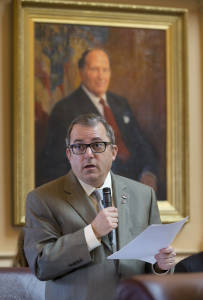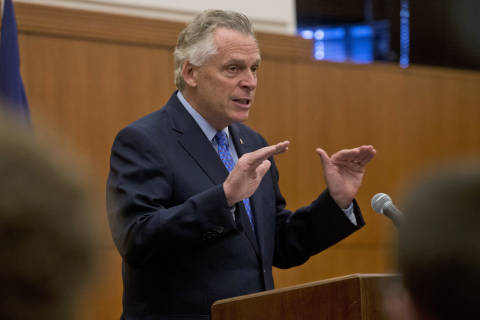
WASHINGTON – Marijuana and opioids will come up in Virginia’s breakneck General Assembly session, which begins Jan. 11.
Adults convicted of simple possession of marijuana would get to keep their drivers licenses instead of facing the six month suspension that currently comes with a conviction or deferred disposition, under a bill filed by Sen. Adam Ebbin, a Democrat from Alexandria, and backed by Sen. Bill Stanley, a Republican.
Another proposal would allow people to get convictions expunged from their records for what might be considered youthful indiscretions.
Republican Sen. Ryan McDougle’s bill, also supported by Democrat Rosalyn Dance, would allow for convictions or deferred dispositions for marijuana possession, underage alcohol possession, or using a fake ID to obtain alcohol as long as the crime occurred before the person turned 21, all court costs and fines have been paid, and five years have passed.
A House bill, filed by Virginia Beach Republican Jason Miyares would require colleges and universities to offer at least a section of a dormitory on campus as substance-free to help students recovering from drug or alcohol addictions.
Several other proposals would lower marijuana production or possession penalties in certain circumstances.
Republican Sen. Bill DeSteph of Virginia Beach suggests lowering the penalty for someone who grows marijuana only for another person without the intent to profit would be guilty of a misdemeanor. Currently, it is a felony punishable by five to 30 years behind bars.
There is also a push to expand state permissions for the possession of marijuana for specific medical uses. A bill from Arlington Sen. Barbara Favola, a Democrat, would allow for an affirmative defense for people with a doctor’s note tied to cancer, HIV/AIDS, Tourette syndrome, Lou Gherig’s disease (ALS), multiple sclerosis, Crohn’s or complex regional pain syndrome. Current law allows the exception from state prosecution for the treatment of epilepsy.
While several states and the District of Columbia have decriminalized marijuana use to at least some degree under local law, it remains against federal law.
Opioids
The opioid crisis that has hit so many corners of Virginia is addressed in several parts of Gov. Terry McAuliffe’s proposed budget amendments that are expected to be a major focus of the General Assembly session.
Additional bills would allow for increased distribution of the life-saving overdose reversal drug naloxone.
A bill filed by Loudoun Republican Delegates Dave LaRock and Tag Greason that is backed by several Democrats, including Loudoun Sen. Jennifer Wexton who filed a similar bill in the Senate, would allow anyone already authorized to train first responders and others on how to use the drug to distribute it to those they train in many circumstances.
The bills would also make clear that a person who uses the naloxone distributed to them in a good-faith attempt to save someone’s life would not be liable for civil damages.
Another proposal from Greason would require the state board of health to track the number of babies impacted by one of the serious problems that can come from being born to an addicted mother. Neonatal abstinence syndrome can be tied to children essentially going through withdrawal shortly after they are born.
All of the bills will either move forward or fall flat quickly in the Republican-controlled General Assembly, since the entire session only runs from Jan. 11 to, at the latest, Feb. 25.






